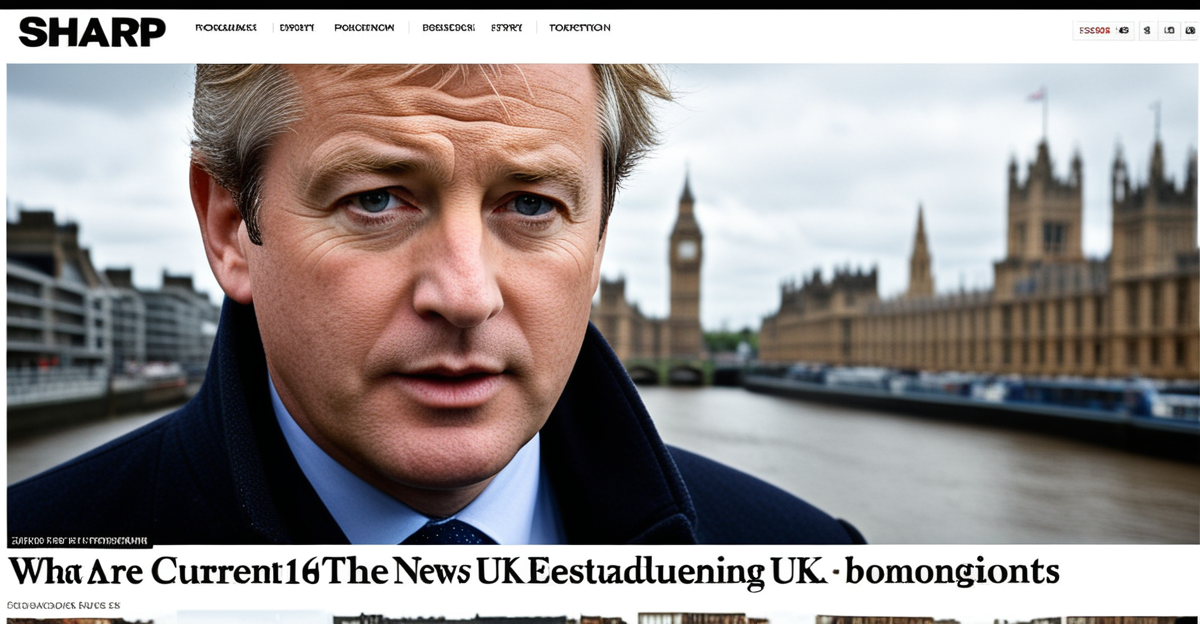Major Forces Reshaping the UK News Landscape
The media landscape UK is undergoing a profound transformation driven by digital evolution and shifting audience habits. One of the most significant changes is the shift from print to online news, which has accelerated as digital platforms offer faster access and greater convenience. This pivot is closely tied to the rise of mobile technology and streaming services, which have revolutionised how people consume news. Instead of traditional scheduled broadcasts or print editions, audiences now prefer on-demand updates via smartphones and tablets.
This shift has triggered notable changes in UK news trends. Readers increasingly expect personalised news tailored to their interests, resulting in fragmented audience behaviour. People no longer rely on single news sources; instead, they curate their own media diets across multiple channels. This fragmentation challenges legacy news outlets but creates space for more niche and diverse content offerings.
Also to read : How Has the UK Media Landscape Evolved in Recent Years?
Additionally, news organisations are harnessing data analytics to better understand and respond to these evolving habits. These developments underscore how current news developments are intricately linked with technological progress and the demand for more flexible, targeted news consumption experiences in the UK.
The Growth of Independent and Alternative Media Outlets
The rise of independent media UK is reshaping the media landscape with a surge in digital-first platforms challenging traditional news sources. As audiences grow sceptical of legacy outlets, they increasingly turn to alternative news providers offering diverse perspectives and niche content. This shift reflects changing media diversity UK, where independent outlets complement mainstream news to meet varied interests.
Topic to read : How is the UK government supporting innovation in startups?
Notable in 2024 is the proliferation of online-only news organisations, podcasts, and newsletters that prioritise agility and direct audience engagement. Many focus on in-depth analysis or underserved communities, reinforcing media diversity UK. This diversification supports healthier public discourse by expanding viewpoints available to readers.
Audience trust is a key driver behind this transition. Surveys show declining confidence in established institutions, leading consumers to seek authenticity and transparency from smaller, independent outlets. In turn, these platforms often embrace community interaction and fact-based reporting to build credibility.
The rise of independent media UK thus contributes significantly to a more pluralistic and responsive news environment. It challenges traditional models while empowering readers to explore a broader spectrum of information, revolutionising how news is produced and consumed across the UK.
Combating Misinformation and Navigating Trust Issues
The prevalence of UK news misinformation has intensified with digital growth, particularly across social media and online forums. Fake news challenges now demand rigorous responses as misinformation risks distorting public understanding of current news developments. To address this, newsrooms implement robust fact-checking protocols and promote transparency in sourcing and editorial processes. These initiatives are essential to rebuild and maintain news trust UK.
Beyond newsroom efforts, technological interventions play a critical role. Advanced algorithms and AI-based tools help detect and flag misleading content rapidly. Regulatory frameworks introduced in 2024 also focus on accountability from digital platforms, aiming to curb the spread of false information. These measures seek to balance free expression with accountability to uphold the integrity of the media landscape UK.
In tackling fake news challenges, collaboration between journalists, tech companies, and policymakers is vital. Increasing public awareness around misinformation equips audiences to critically assess sources, reinforcing news trust UK. Ultimately, combating misinformation strengthens democratic discourse and ensures that the UK news ecosystem remains credible and reliable amid evolving digital pressures.
The Influential Role of Social Media Platforms
Social media UK news platforms have fundamentally changed news consumption trends, becoming a key source for discovering and sharing information rapidly. Audiences increasingly rely on these platforms to access breaking news and engage with content directly. This shift has made social media a powerful tool in shaping public discourse UK, where opinions and debates unfold dynamically in real time.
However, social media’s algorithm-driven nature introduces challenges. Personalized feeds often create information bubbles, reinforcing users’ existing views and limiting exposure to diverse perspectives. This can polarize public opinion and complicate efforts to maintain balanced news consumption.
Moreover, the speed at which content spreads heightens the risk of misinformation, making it critical for platforms and users alike to apply scrutiny when sharing news. Despite these issues, social media enables broader participation in current events and democratizes access to information, aligning closely with evolving UK news trends.
In summary, social media has revolutionized the media landscape UK by altering how news is found and discussed. It demands both awareness and responsibility from users and providers to foster a healthy, informed public discourse.
Innovations in Newsroom Technology and Reporting
The media landscape UK is rapidly evolving with cutting-edge journalism technology UK reshaping how news is produced and consumed. Newsrooms are increasingly adopting AI-powered tools to streamline reporting tasks such as transcription, fact-checking, and content generation. These advancements enhance accuracy and speed, enabling journalists to focus more on in-depth analysis of current news developments. Automation reduces repetitive work while preserving editorial quality.
Immersive storytelling through augmented reality (AR) and virtual reality (VR) is gaining traction, offering audiences richer, more engaging experiences. For example, VR can transport viewers to remote locations, making complex stories more accessible and impactful. These techniques respond to changing UK news trends favoring interactive and personalised content that captures attention in a crowded digital space.
Advanced data analytics also empower newsrooms to better understand audience preferences, guiding content strategy and distribution. By leveraging technology, media organisations sustain relevance and foster deeper connections with readers. However, this innovation requires balancing automation with ethical considerations to maintain trust and uphold journalistic standards in the media landscape UK.
Regulatory Developments and their Impact on Journalism
The landscape of UK media regulations is evolving rapidly in 2024, introducing new frameworks that aim to balance press freedom with increased accountability. Recent legislative updates focus on addressing misinformation and ethical reporting while safeguarding journalistic independence. These changes reflect growing public and governmental calls for responsible media conduct without undermining fundamental rights central to press freedom UK.
Key regulatory reforms impose stricter transparency requirements, mandating clearer disclosure of sources and methods. Additionally, rules emphasize protecting individual privacy and combating harmful content. While some media professionals express concerns about potential constraints, many support regulations that reinforce public trust through enhanced editorial responsibility.
The journalism law 2024 also expands oversight powers for regulatory bodies, enabling more effective enforcement against breaches such as libel or data misuse. It encourages collaboration between media outlets, technology platforms, and regulators to uphold standards in a digital-first environment.
Stakeholders—including the government, media organisations, and civil society—are actively engaged in shaping these policies to ensure that evolving UK media regulations foster a resilient press ecosystem. This evolving regulatory landscape aims to strengthen journalism’s role as a pillar of democracy in the face of fast-changing media challenges.

